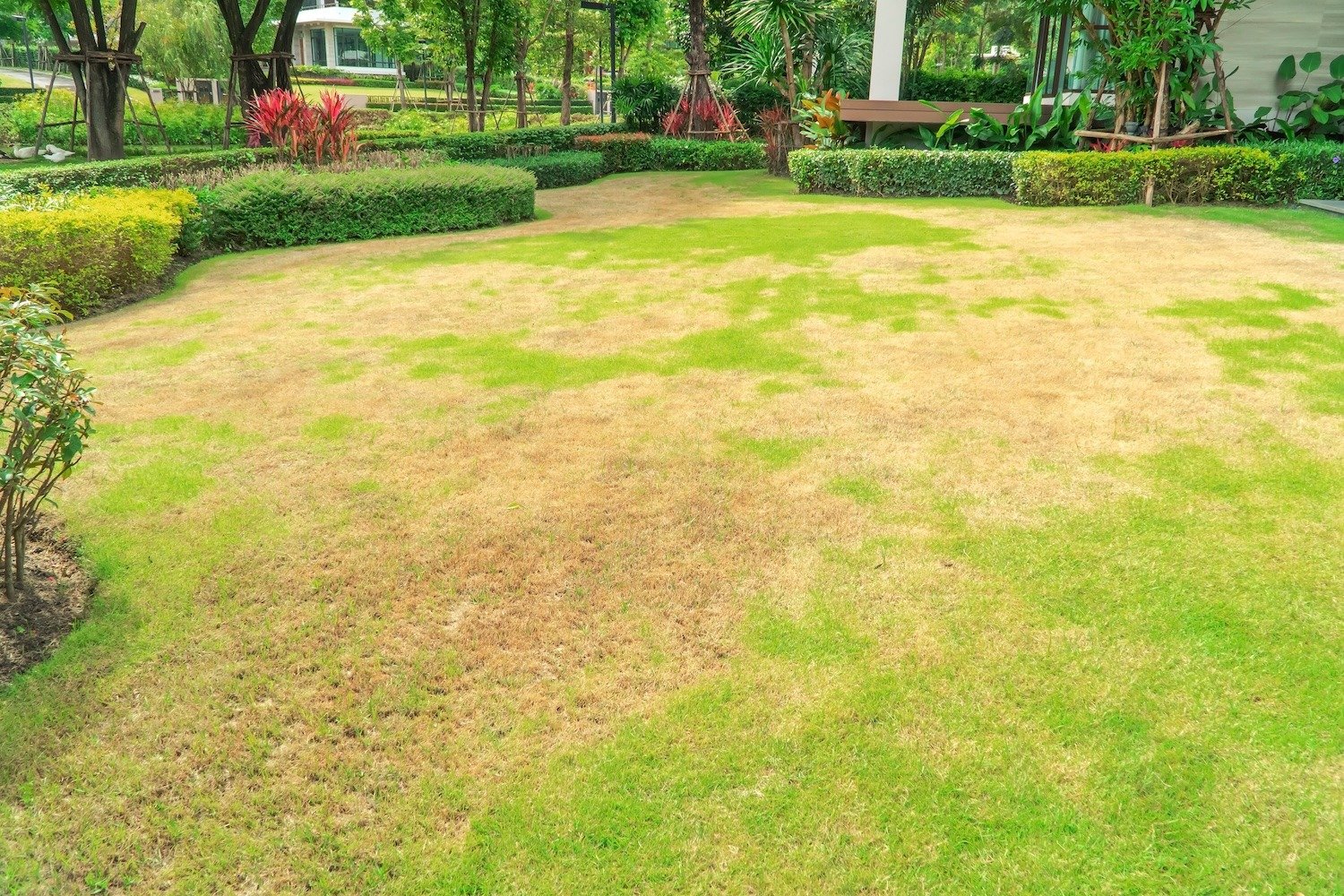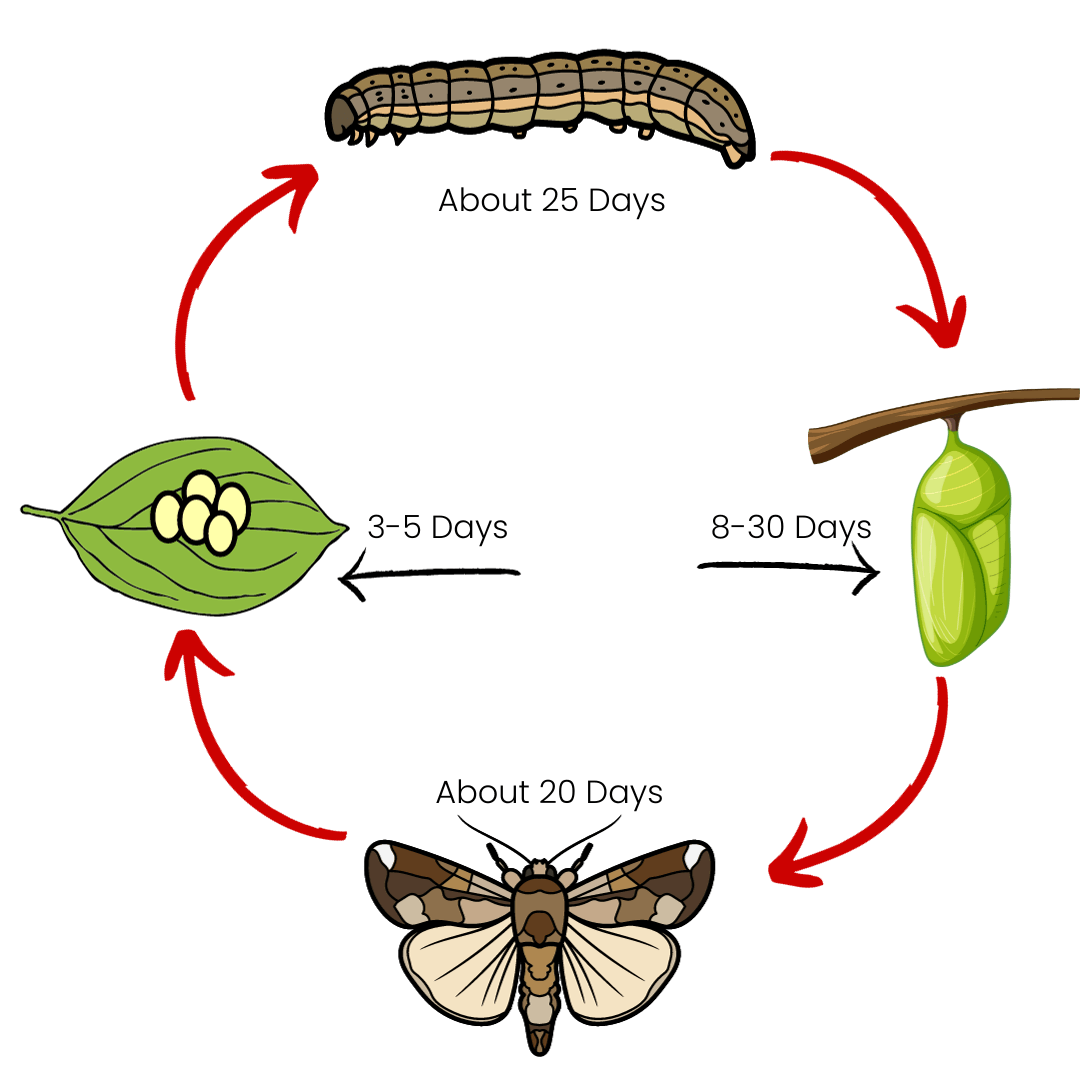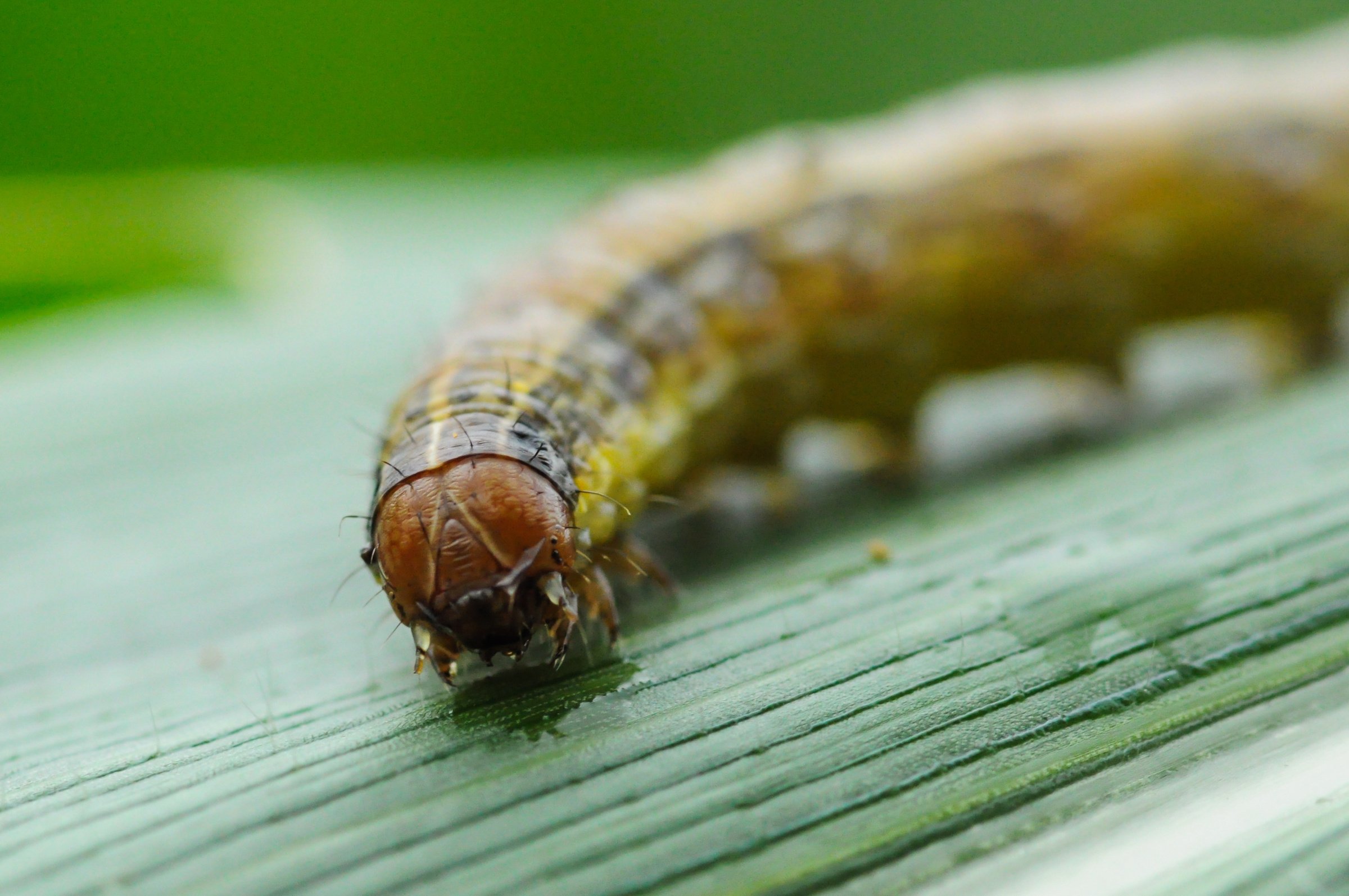Armyworm Control
Armyworms are destructive pests that eat away the grass blades when they infiltrate your lawn.
Defeat Armyworms in the Battle for your Lawn!
Armyworms can destroy your lawn in as little as a couple of days, eating entire grass blades down to where the root grows.
Powerful Liquid Treatment Options
A single application of our insecticide treatment applied over your whole lawn is all you need!
– – Armyworm Control – –
Don't let armyworms continue to destroy your lawn... Act now!
Treatment Options
We offer 2 individually exclusive treatment options–
Treatment Option 1
Treatment Option 2
PREVENTIVE
Armyworm Control
Proactive treatment before infestation
ONE treatment– Our preventive armyworm control covers your entire lawn with our insecticide to protect your lawn from hungry armyworms all season long.
Preventive treatment– Stop armyworms in their tracks before they even get the chance to infest your lawn. You'll have peace of mind knowing that you're protected.
Advantage– Because armyworms are so destructive to your lawn, it's best practice to keep a leg up on your enemy by equipping your lawn with a treatment that stops infestations before they happen.
The Bottom Line– This treatment option is proactive, designed to prevent armyworms from entering your lawn for the whole season.

AFTER INFESTATION
Armyworm Control
Eliminate armyworms already present on your lawn
ONE treatment– Our armyworm infestation treatment covers your entire lawn with our commercial-grade liquid insecticide and immediately begins eliminating armyworms on contact.
Elimination treatment– Stop armyworms before complete destruction of your lawn. Our fast-acting formula halts further damage by beginning to terminate them on contact.
Damage control– Catching your armyworm problem early is crucial to minimizing the damage done to your lawn. It only takes a few days for armyworms to completely destroy your lawn, so you need to act quickly!
The Bottom Line– This treatment option is retroactive, designed to eliminate armyworms that have already infested your lawn.
Please note that while both of these treatment options are extremely effective, they will not repair your grass that has already been damaged by armyworms.
How Do You Know If You Have Armyworms?
Here are a few things to look out for–
- Small brown lawn patches are often the first clue of an armyworm problem.
- Grass blades are ragged or chewed (creating a transparent “windowpane" look).
- Your lawn looks like it is moving.
- Your lawn is dying extremely fast.
- Many birds, skunks, and rodents feed on armyworms– any of these critters or evidence of them appearing on your lawn may indicate that they have found armyworms to feed on.
- You see armyworms crawling on your lawn.

What are Armyworms?
Well, funny you should ask. Technically, armyworms are caterpillars. Their life cycle begins as an armyworm, and they eventually turn into moths. Armyworms are destructive pests that consume turf grasses, but they'll feed on vegetables and other plants when food is scarce. The worm-like larvae stage causes the most damage, running through food at a remarkable pace. They are known to move in large numbers and quickly eat through their food supply, devouring grasses, grain crops, and more.
To give you an idea of how fast their destruction can be... When large numbers are present in your lawn, armyworms may seem to march side-by-side like an army battalion. With dense populations, armyworms can destroy the size of a football field in as little as 3 days!

Armyworm Identification
There are several species of armyworms that affect lawns and crops in the United States.
- In the beginning stage, they typically measure 1 1/2 to 2 inches long.
- Their heads may vary in color.
- They have a distinctive inverted "Y" mark on the front of their head.
- Armyworm bodies have a series of green, yellow, red or brown stripes down their sides and backs.
- Adult armyworm moths measure about 1 1/2 inches across.
- Their front wings are dark gray with light and dark splotches.
- Their hind wings are pale gray-white.

What Our Customers Think...

Top Turf came the next day after I called to spray for an infestation of armyworms. Score them 10 out of 10! Prompt, professional, pleasant!
Beverly M.
Armyworm Control Customer

Greg was very professional. Explained to me how we can eradicate the armyworms in my lawn.
Jerry D.
Armyworm Control Customer

Thank you Robert for treating my lawn for armyworms. He was very professional and knowledgeable.
Cheryl B.
Armyworm Control Customer
FREQUENTLY ASKED QUESTIONS
-
How often do you treat for armyworms?
Preventive Armyworm Control–
One treatment is applied in the spring season to keep armyworms out of your lawn during their growing season (late spring through late summer).
After Infestation Armyworm Control–
We apply one treatment to your entire lawn that will eliminate the armyworms and halt further destruction.
-
How did armyworms end up in my lawn?
Armyworms are actually the beginning life stages of moths. Moths fly into your lawn at night, feeding on nectar, mating, and searching for places to lay their eggs. They deposit their eggs in rows or clusters on the lower leaves of grasses or at the base of plants. The eggs will then hatch in 1 to 2 weeks, the larvae hungry and ready to devour your lawn.
-
What time of year do armyworms come around?
Typically, armyworms are around in the late spring all the way through to late summer. During warm summer months, watch out for these destructive insects!
-
How did armyworms get their name?
They actually got their name from their behavior of moving across fields in an army-like fashion. Armyworms will consume all available food sources on nearly any plant as they migrate in search of edible foliage. Common plants attacked by armyworms include fescue, grain, corn, small grains, sweet potato, beans, turnip, clover, spinach, cucumber, potatoes, tomatoes, cotton, and cabbage.
-
What are some good ways to prevent armyworms from coming to my lawn?
Here are a few tips for keeping armyworms out of your lawn–
- Use our preventive treatment
The most effective way to prevent armyworms from coming to your lawn is to use our insecticide treatment. Then you'll have the peace of mind to know you're protected. - Keep your lawn mowed
Keeping your lawn mowed regularly will not only keep your grass blades shorter, but if there are any eggs in the turf your mower will suck them up, wiping out any larvae before they hatch. - Healthy balanced soil
Keeping your soil treated and well balanced will help maintain a healthy grass blade and hardy soil, thus attracting healthy, beneficial insects to your soil. - Attract good animals
Attracting good animals to your lawn is also helpful. Flies, birds, rodents, frogs, and certain wasps are a few examples of good animals to have in your lawn as they will feed on armyworm larvae and pupae.
- Use our preventive treatment
-
Do I need to keep off my lawn after treatment?
After your armyworm treatment, keep all pets and humans off your lawn for at least 2 hours. This will give the armyworm product time to completely dry to ensure maximum effectiveness without harming you, your family, or your pets.
-
What does recovery look like for my lawn?
If your lawn has been severely damaged from the destruction of armyworms, we suggest that you continue with your fertilization and weed control treatments from us and add our core aeration service (with a warm season grass like Bermuda) or core aeration and seeding service (with a cool season grass like Tall Fescue). These services will help your lawn re-establish itself and recover from the damage caused.
-
Additional questions?
Please don't hesitate to ask! We are happy to answer any questions you have about our Armyworm Control service or any other service we offer. Please visit our locations page for more information on how to get in touch with your local branch!
Win the battle to protect your turf!
- One-time treatments for armyworms to either prevent or stop further damage from these hungry insects
- With your lawn clear of armyworms, you have more time to enjoy it with your family, friends, and pets
- No worries about damaged grass and dead patches
- Let the good times roll!
Ready to start service?



